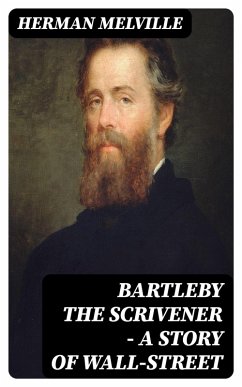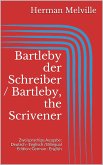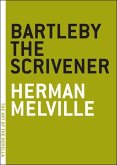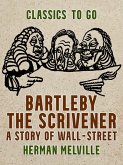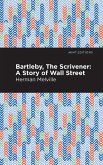In "Bartleby the Scrivener: A Story of Wall-Street," Herman Melville crafts a profound narrative that explores themes of isolation, passive resistance, and the dehumanizing effects of modern capitalism. Through the character of Bartleby, a scrivener whose refrain of "I would prefer not to" encapsulates his profound disengagement from societal expectations, Melville employs a minimalist yet poignant style that reflects both the starkness of Wall Street and the complexity of human nature. The story's setting against the backdrop of 19th-century New York serves as a critical commentary on the economic ambitions and moral dissonance of the time, echoing the existential concerns that arise in a rapidly industrializing world. Herman Melville, an author underscored by the struggles with his own identity and societal roles, draws from his experiences and observations in an era marked by economic upheaval. Despite initial obscurity, Melville's later recognition as a key figure in American literature was bolstered by his exploration of complex themes in works like "Moby-Dick" and "Billy Budd." His engagement with the contradictions of human ambition and individualism is evident in Bartleby's enigmatic presence, reflecting Melville's own ambivalence toward capitalism and modernity. "Bartleby the Scrivener" is highly recommended for readers interested in existential literature, economic critique, and the profound implications of passive resistance. This text remains a seminal work in understanding the human condition, raising questions about free will, societal expectations, and the individual's struggle within the mechanisms of commerce. Melville's rich prose and intricate character exploration invite readers to reflect deeply on their own existence and the nature of work in a modern society.
Dieser Download kann aus rechtlichen Gründen nur mit Rechnungsadresse in A, B, BG, CY, CZ, D, DK, EW, E, FIN, F, GR, H, IRL, I, LT, L, LR, M, NL, PL, P, R, S, SLO, SK ausgeliefert werden.

